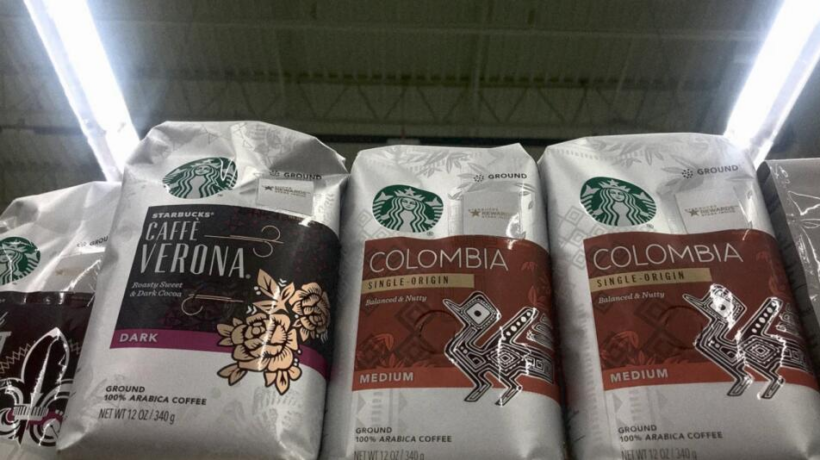The watchdog nonprofit National Consumers League has filed a lawsuit against Starbucks for false and deceptive advertising, alleging that the coffee chain’s ethical sourcing standards have been awarded to farms and co-ops with documented cases of human rights abuses, including slavery-like conditions, child labor, human trafficking, and sexual harassment.
The lawsuit, filed Wednesday in D.C. Superior Court, alleges that Starbucks has an “unfair and deceptive trade practice of misrepresenting to consumers that it is ‘committed to 100% ethical coffee sourcing’ and to ‘100% ethically sourced tea,’ when in reality Starbucks does not ethically source its coffee beans or tea leaves.” It also alleges that Starbucks is taking advantage of a growing consumer demand for ethically sourced goods, which often come at a price premium.
“On every bag of coffee and every box of K-cups sitting on our grocery store shelves, Starbucks is telling consumers a lie,” said Sally Greenberg, CEO of the National Consumers League, at a press conference announcing the lawsuit. Greenberg is referring to the packaging that states, “Committed to 100% ethical coffee sourcing.” But that claim is deceptive, she added. “There are significant human rights and labor abuses across Starbucks’s supply chain.”
“We are aware of the lawsuit, and plan to aggressively defend against the asserted claims that Starbucks has misrepresented its ethical sourcing commitments to customers,” a Starbucks spokesperson said via email. “We take allegations like these extremely seriously and are actively engaged with farms to ensure they adhere to our standards.” The company emphasized that members of its supply chain are required to reverify regularly.
The lawsuit takes aim at the Coffee and Farmer Equity (CAFE) Practices, an internal Starbucks ethical sourcing program that launched in 2004. The verification program “measures farms against economic, social, and environmental criteria, all designed to promote transparent, profitable, and sustainable coffee-growing practices while also protecting the well-being of coffee farmers and workers,” according to Starbucks’ website. Per the company, the process involves third-party inspections and detailed verification reports submitted to Starbucks, as well as a regular re-verification requirement in order to maintain “an active status in the program.”
But the National Consumers League says the program lacks the transparency that would allow outsiders, including NGOs, “to confirm Starbucks’s claims about its ethical sourcing practices,” says Stacey Layton, the attorney representing NCL. The lawsuit mentions incidents at suppliers in Brazil, Kenya, and Guatemala. In the case of some Brazilian suppliers, the verification process doesn’t include any off-site interviews with workers, their regional union, or the Brazilian labor department, and so “CAFE Practices inspectors do not access the information sources most likely to provide relevant information about workplace practices.”
The lawsuit notes that in 2022, a Brazilian labour prosecutor issued a complaint against the largest supplier of Starbucks in Brazil, a CAFE Practices-certified co-op that includes more than 2,000 farms—which account for 40% of Starbucks’s Brazilian coffee supply. “The labor prosecutor’s complaint cites abusive and unsafe working conditions analogous to slavery, including physical and psychological violence and confinement,” the lawsuit reads.
An investigative report from Brazilian news outlet Reporter Brasil on slave and child labor found at certified farms that supply to Starbucks is cited as a source in the lawsuit. That report details a case in which 17 workers, including a 15-, 16-, and 17-year-old, were rescued from “modern slavery” in August 2022 at the Mesas Farm in Campos Altos. A report conducted by labor inspectors says workers weren’t provided basic tools for harvesting, and had to purchase their own gloves; they also weren’t provided “chemical toilets” and so “would relieve themselves out in the bush or in the middle of the coffee trees.” “Starbucks admitted that Mesas is certified but did not explain whether the certification will be suspended,” according to Reporter Brasil.
Starbucks buys 3% of the world’s coffee, which comes from more than 400,000 farms across 30 companies, per the company. The lawsuit is asking that Starbucks correct its advertising around ethical sourcing and award actual and punitive damages.







